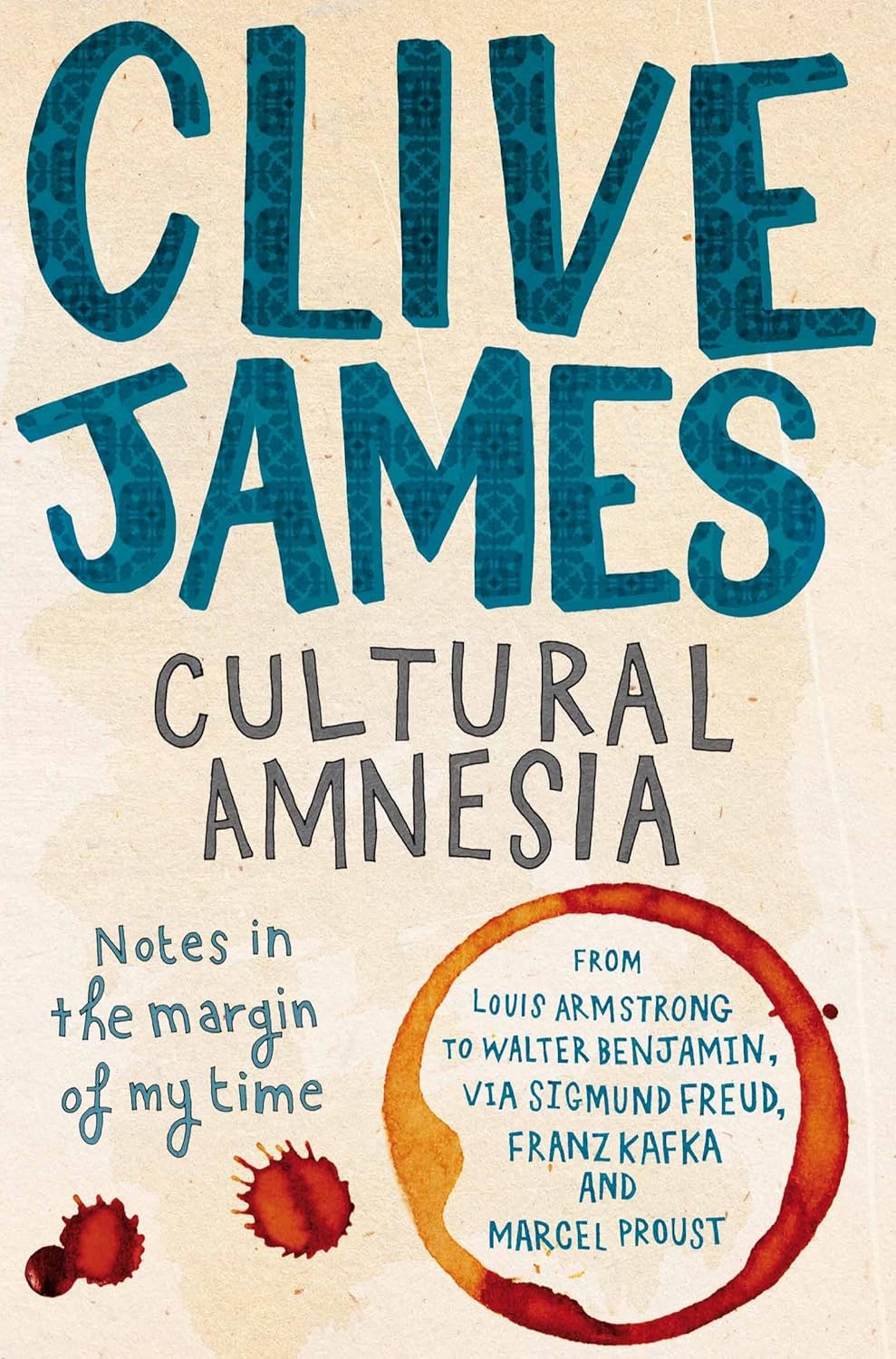About this deal
Whether you agree with him or not about Portman, in James’ ardor, poor old guillotined Sophie Scholl gets lost in the Hollywood gush and semi-amateur movie casting. James's writings include the great tome Cultural Amnesia , the reading of which is something like getting a master's degree in 20th-century intellectual history. Although it putatively focuses on the twentieth century, there are some notable names from rather earlier, including Keats and Montaigne. Some of the others don't even exist in translation yet, but that's all right because James has read every single one of them in the original, and he's going to make damn sure you know about it.
Thomas Mann, with the family poodle snuffling petulantly at his knee, would rather not talk to Brecht, and Sartre is keen to avoid Solzhenitsyn. Although it's obviously essential in an essay or in philosophy, there is at least an argument that in the arts a complexity of expression can be a pleasure in itself. To recap, Sophie Scholl’s section goes from 706-714, but on 709 Na
It's this approach which has led to James's much commented-on demonization of Jean-Paul Sartre, who is ‘a devil's advocate to be despised more than the devil’, ‘the most conspicuous example in the twentieth century of a fully qualified intellectual aiding and abetting the opponents of civilization’.
But there were always annotations that struck me as not fitting any scheme except a much larger one, to be attempted far in the future, probably towards the end of my life. Humanist beliefs stress the potential value and goodness of human beings, emphasize common human needs, and seek solely rational ways of solving human problems. To younger readers who might find themselves wondering why it is so full of forgotten names, and takes such a violently unpredictable course, the first thing to say is: welcome to the twentieth century, out of which your century grew as surely as a column of black smoke grows from an oil fire. Witty, insightful and unashamedly erudite, the book is a superb miscellany of 20th-century cultural and political subjects.
As the time for assembling my reflections approached, I resolved that a premature synthesis was the thing to be avoided. Sometimes he seems to hold these people up to some very demanding standards: he's convincing on Sartre's feeble response to Nazism, but surely it's a bit much to question why Wittgenstein never mention the Fascists in Philosophische Untersuchungen, a work of pure linguistic philosophy? The section on Sophie Scholl (the German college student who was executed for protesting the Nazi regime) was somewhat more on topic, but took a far stranger turn when James embarked on speculating who should play Scholl in the talkies, speculation that then took him on a long dewy-eyed bout of incontinent praise directed towards actress Natalie Portman. You never know where the essay will take you, its path is often idiosyncratic but never less than arresting.
This arbitrary arrangement, which looks on the surface to be so rigorously thought-out, vexes the reader and leads to a feeling that despite certain claims to a unifying cultural vision, there is rather ad hoc approach to the project. To read him is to bask in phrases and sentences which flow without a single dud line, exemplifying the "art that conceals art". Then a bone tossed: “This is a book about a world that men made, and it taught plenty of us to wish that women had made it instead. For one thing, even if you managed to read only two or three of its entries a day, it would still take a satisfying few weeks to finish, and then you'd be able to start again ~ or simply dip in and browse ~ knowing much of it would still be new enough and of a consistently high quality to give limitless pleasure for the stranded months ahead. followed with “Nobody ever wrote a more unaffectedly elegant English; he stands at the height to English prose; its hundreds of years of steady development culminate in him.We can cocoon ourselves, if we wish, in a new provincialism more powerful than any of the past empires.
Second, he mixes in many relatively obscure (at least they were obscure for me) figures from history, particularly from 20th Century France and Germany.Said wrote after the attack on the World Trade Center, Western humanism is not enough: we need a universal humanism. If the eighteenth century had meant to usher in the age of reason, the nineteenth century, with the cold snick of the guillotine ringing in its ears, meant to supply some of the regrettable deficiencies of reason by the addition of science. a towering figure like Brecht “had given aid and comfort to totalitarian power”) Science comes under attack, despite the common notion that “humanism” implies a reliance on scientific method and is most generally felt to be allied with it. Book is tight, square, particularly sharp-cornered and free of any markings or flaws inside and out - book is Fine. The most amazing thing is that James appreciates them all, even when he criticizes their mistakes and excesses.
 Great Deal
Great Deal 